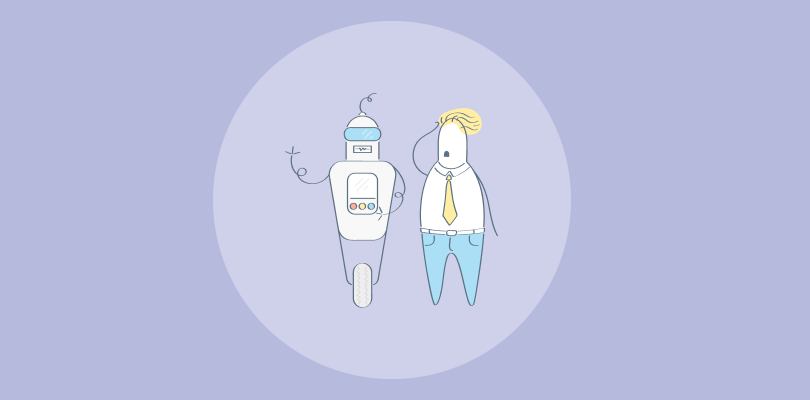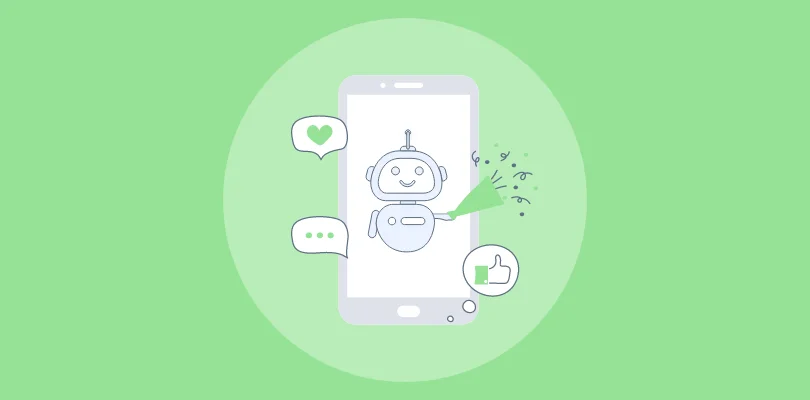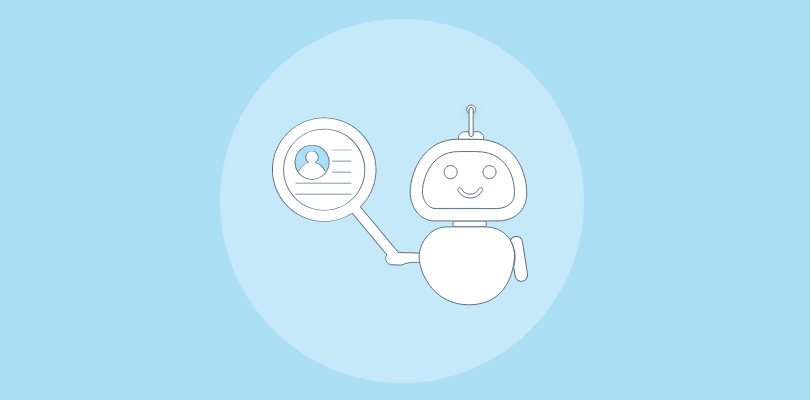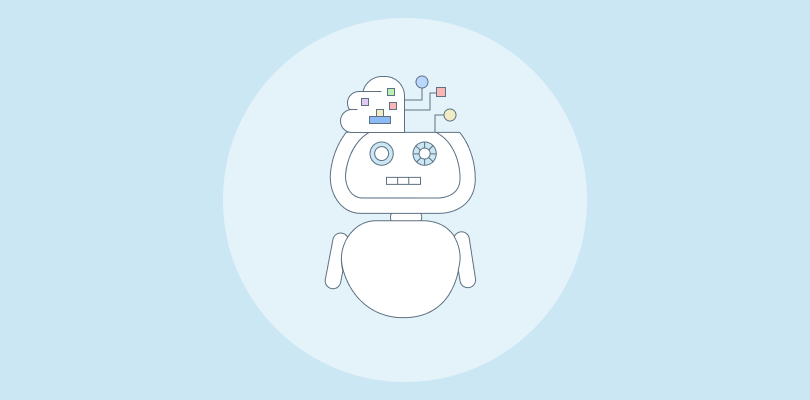Retail chatbots are set to take the online shopping world by storm, with global spending projected to skyrocket to a whooping $72 billion by 2028.
Retail chatbots can improve customer satisfaction with 24/7 support, boost sales through product recommendations, and reduce costs by automating tasks.
From understanding various types and use cases to building your own chatbot, this guide covers everything you need to know!
Let’s find out how retail chatbots can reshape your business and open up new opportunities.
What is a Retail Chatbot?
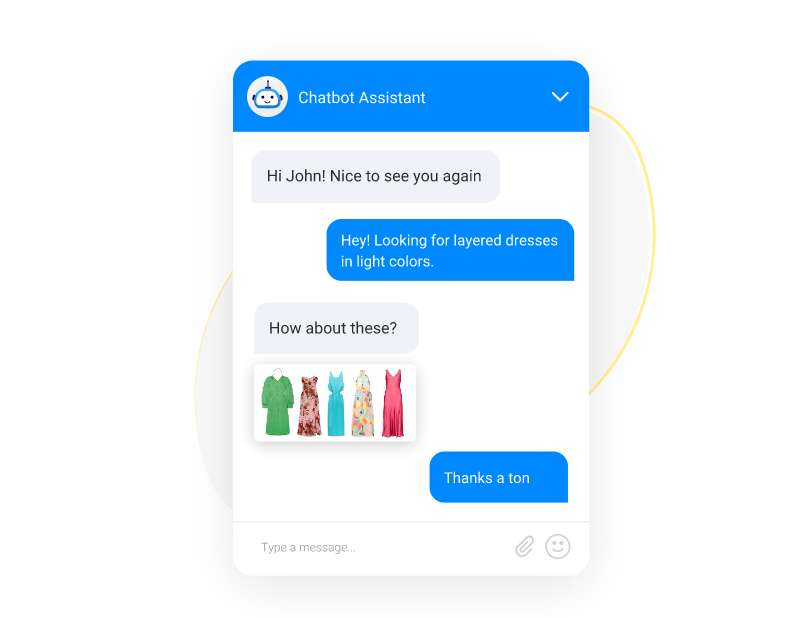
A retail chatbot is an AI-powered software solution that interacts with customers in real-time through text or voice interfaces. It enhances the customer shopping journey by providing immediate assistance, personalized recommendations, and seamless transactions.
Deployable across various platforms like websites, mobile apps, and social media, these virtual assistants simulate human conversation to handle a range of customer service inquiries, from product information and order tracking to returns and troubleshooting. By automating routine tasks, retail chatbots free up human agents to focus on complex issues, leading to improved efficiency and cost savings.
Moreover, through intelligent data analysis and machine learning capabilities, they gather valuable customer insights, enabling businesses to personalize marketing efforts and product recommendations, ultimately driving customer satisfaction and loyalty.
What are the Benefits of AI Chatbots for the Retail Industry?
Retail AI chatbots are reshaping the retail industry by enabling real-time customer interactions, offering instant help, and streamlining tasks. With customers expecting more, retailers are turning to AI to refine service, boost sales, and make shopping better. Here are six ways AI chatbots are benefiting the retail industry:
Instant Help, Anytime
AI chatbots provide round-the-clock assistance, handling customer queries, complaints, and product inquiries at any time. This constant availability not only improves customer satisfaction but also reduces the workload on human agents, allowing them to focus on more complex tasks.
Personalized Shopping Experience
AI chatbots can analyze customer data, preferences, and past interactions to offer personalized product recommendations and deals. By tailoring offers to individual customers, they boost engagement and encourage repeat purchases, creating a more personalized shopping experience.
Streamlined Order Management
AI chatbots help streamline order management by allowing customers to place orders, track shipments, and check delivery statuses—all from one interface. This reduces the need for multiple follow-ups and ensures that customers have access to real-time updates.
Inventory and Product Availability Checks
AI chatbots can be integrated with inventory management systems to provide customers with real-time information on product availability. Whether customers are shopping online or in-store, chatbots help them find what they need faster, improving the shopping experience.
Automated Customer Feedback Collection
Retailers can use AI chatbots and post-chat surveys to collect and analyze customer feedback post-purchase. The chatbot can ask for ratings, reviews, and suggestions, giving retailers valuable insights into customer preferences and areas for improvement without needing to rely on manual processes.
Efficient Handling of Returns and Exchanges
AI chatbots can simplify the process of handling returns and exchanges by guiding customers through the steps, providing shipping labels, and updating the status of the return. This automation helps reduce customer frustration and makes the process more efficient for both the customer and the retailer.
In short, AI chatbots help retailers improve customer satisfaction, streamline operations, and boost sales, all while providing a smooth and personalized shopping experience.
What are the Top 3 Retail Chatbots of 2024?
With so many chatbots on the market, choosing the right one can be overwhelming. To make your decision easier, here are 3 of the most impactful retail chatbots you can consider this year:
1. ProProfs Chat
Best for 24/7 delightful customer support with AI chatbots
ProProfs Chat is a robust customer support tool, packed with features designed to impress. Its sleek chatbot builder lets you effortlessly create and customize chatbots that are quick to learn and adapt, handling everything from simple FAQs to intricate queries with ease.
This tool combines cutting-edge technology with ease of use, ensuring your customer service isn’t just efficient but also extraordinary. And guess what? It offers real-time audio and video chat options to offer instant support, while its advanced reporting tools give you powerful insights into customer interactions and support performance
Plus, seamless integrations with other platforms add to its versatility, making it a must-have for businesses aiming to boost engagement and streamline their operations.
Top Features:
- Chat tags to better organize customer queries and issues
- Pre-chat form to collect essential information from customers
- Real-time visitor tracking to understand visitors’ behaviour
- Invitation pop-ups to encourage visitors to engage in chat
Cons:
- Lacks an on-premise version
- The dark user interface option is not available
Pricing: A Forever Free plan with all premium features is available for small teams. Paid plan starts from $19.99/operator/month.
2. Botsify
Best for Omnichannel Live Chat Service
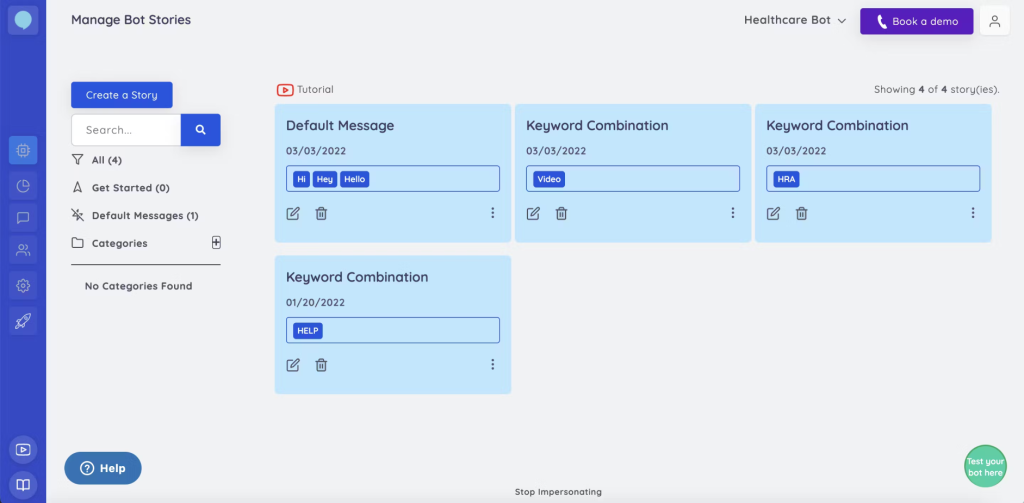
Botsify lets you effortlessly connect with customers across various platforms—whether it’s your website, social media, or messaging apps. This means every interaction remains smooth and consistent, delivering real-time support no matter where your customers are.
With its multilanguage chatbot feature, you can cater to a global audience by translating conversations into over 100 languages in just minutes. Plus, its live chat option allows human agents to step in and resolve issues personally, speeding up service and boosting sales.
Botsify not only streamlines communication but also boosts efficiency and sales, making it a powerful tool for any business aiming to elevate their customer support and engagement.
Top Features:
- Conversational forms to qualify lead and engage website visitors
- Seamless support across various platforms such as Facebook Messenger and Slack
- Sentiment analysis to understand user feelings and respond appropriately
- Message scheduling feature to ensure timely and automated response
Cons:
- Chatbot’s knowledge base takes time to update
- Chatbot builder interface sometimes has glitches
Pricing: Starts at $49/month.
Also Read : Top 10 Botsify Alternatives to Consider in 2024
3. Drift
Best for Conversational Landing Pages
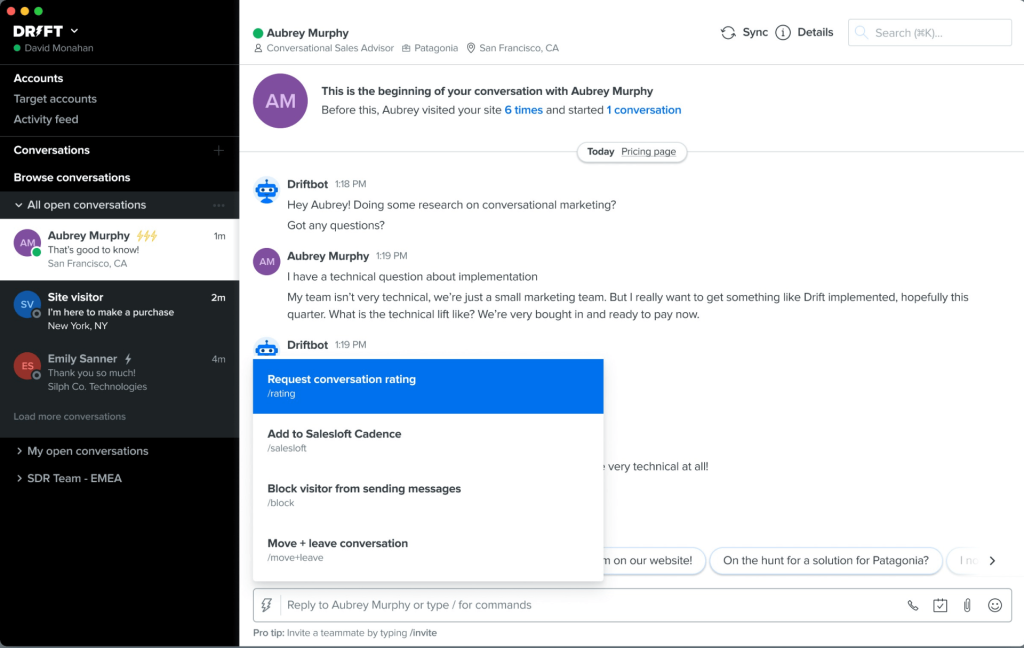
Drift is known for its “conversational landing pages. The landing pages go beyond displaying static information by greeting visitors with an interactive chat window. This personalized approach helps engage users right away.
This tool offers seamless integration with popular platforms like Slack, Zoom, Salesforce, and Zendesk, ensuring it fits effortlessly into your existing workflows. Plus, it captures leads through pre-chat and offline message forms, enhancing its ability to generate valuable prospects.
And that’s not all, it offers an advanced chatbot that improves customer experiences, increases engagement, and gives actionable insights for refining your interactions.
Top Features:
- Automated meeting booking to drive more qualified appointments
- Conversational landing pages to generate more leads
- In-depth analytics to get detailed insights and analyze performance
- Video calling feature to add a personal touch to communication
Cons:
- AI chatbots are not featured in the starting plan
- Cost can be higher than other platforms
Pricing: Custom pricing.
Also Read : 11 Best Drift Alternatives for Your Business in 2024
What are the Use Cases of Retail Chatbots?
Retail chatbots are changing how businesses connect with their customers. Using smart AI technology, these chatbots help simplify tasks, improve customer interactions, and increase sales. Here are some of the most impactful chatbots’ use cases in retail industry:
Personalized Product Recommendations
Retail chatbot software can analyze customer behavior, past purchases, and browsing history to offer tailored product suggestions. For instance, if a customer frequently buys athletic wear, the chatbot can recommend the latest sports apparel or upcoming sales on fitness gear. This personal touch not only enhances the shopping experience but also boosts sales by suggesting relevant products.
Always-On Chatbot Assistance
Chatbots provide round-the-clock assistance, addressing queries about products, order statuses, and return policies at any time of day. This constant availability ensures customers receive timely help, improving satisfaction and reducing the burden on human customer service representatives.
Order Tracking and Updates
Customers can use chatbots to track their orders in real-time. By entering their order number, they can receive updates on the shipment status, estimated delivery times, and any delays. This functionality keeps customers informed and reduces the need for them to contact support for updates.
Handling Returns and Exchanges
Retail chatbots can streamline the returns and exchanges process by guiding customers through the necessary steps. They can provide information on return policies, generate return labels, and even initiate the return process, making it more efficient and user-friendly.
Appointment Scheduling
For stores offering services like personal shopping, fittings, or consultations, chatbots can handle appointment scheduling. Customers can choose available slots, receive reminders, and reschedule if needed, all through an interactive chat interface, boosting convenience and customer satisfaction.
Promotional Campaigns and Discounts
Chatbots can inform customers about ongoing promotions, discount codes, and special offers. By analyzing customer preferences and purchase history, they can send personalized promotions that match individual interests, driving more targeted and effective marketing campaigns.
Customer Feedback and Surveys
Chatbots can collect customer feedback through automated surveys after purchases or interactions. They can ask specific questions about the shopping experience, product satisfaction, or service quality, providing retailers with valuable insights for improving their operations and customer service.
Product Information and Comparison
Chatbots can provide detailed information about products, including specifications, availability, and pricing. They can also assist customers in comparing different products by highlighting key features and differences, helping customers make more informed purchasing decisions.
These use cases reflect how chatbots in the retail industry can improve various aspects of the shopping experience, from personalized recommendations to efficient support and feedback collection.
FREE. All Features. FOREVER!
Try our Forever FREE account with all premium features!
What are the Different Types of Retail Chatbots?
Let’s take a look at the different types of retail chatbots and what they can do:
Rule-Based Chatbots
Structured and efficient, these chatbots operate on a foundation of predefined rules and decision trees. They are designed to recognize specific keywords or phrases and respond accordingly, making them ideal for handling frequently asked questions, providing basic information, and guiding users through simple processes.
While they lack the flexibility of their AI-powered counterparts, they are relatively easy to implement and maintain, making them a cost-effective option for businesses with straightforward customer service needs.
AI-Powered Chatbots
Empowered by artificial intelligence, natural language processing, and machine learning, these chatbots are capable of understanding customer intent, even when expressed in natural language. They can engage in more nuanced conversations, offer personalized recommendations, and continuously improve their performance through interactions.
AI-powered chatbots are particularly valuable for handling complex queries, providing tailored customer experiences, and delivering intelligent support that evolves over time.
Hybrid Chatbots
A harmonious blend of rule-based and AI-powered capabilities, these chatbots offer the best of both worlds. They can efficiently manage routine inquiries and simple tasks while also engaging in more complex conversations and understanding customer intent.
Hybrid chatbots strike a balance between structure and adaptability, making them a versatile option for businesses seeking to provide both efficient and personalized customer service.
Voice-Activated Chatbots
These chatbots leverage voice recognition technology to enable hands-free interactions, enhancing accessibility and convenience for users. They are particularly well-suited for mobile devices, smart home environments, and situations where typing may be impractical.
While they offer a more natural and intuitive interface, they may encounter challenges with accurately understanding accents or background noise.
Social Media Chatbots
Integrated into popular social media platforms, these chatbots allow businesses to engage with customers directly on the channels where they are already active. They provide a convenient way to answer questions, offer support, and even facilitate transactions.
Social media chatbots can improve brand visibility and engagement, but their functionality may be limited compared to standalone solutions.
Omnichannel Chatbots
Designed to operate seamlessly across multiple channels, omnichannel chatbots deliver a consistent and personalized customer experience regardless of the platform used. They can integrate with websites, messaging apps, social media, and other channels, ensuring that customers receive the same level of service and support wherever they interact with your brand.
Task-Specific Chatbots
Focused on specific functions like product recommendations, order tracking, or lead generation, these chatbots are designed to excel at their designated tasks. They offer a streamlined and efficient experience for users seeking assistance with specific needs, but may not be as versatile as more general-purpose chatbots.
Conversational AI Chatbots
Representing the cutting edge of chatbot technology, these sophisticated solutions leverage advanced AI and natural language understanding to engage in context-aware, human-like conversations. They can understand complex queries, anticipate customer needs, and deliver highly personalized experiences.
Conversational AI chatbots are ideal for building strong customer relationships and fostering brand loyalty, but their development and maintenance require significant expertise and resources.
The ideal chatbot type for a retailer hinges on their unique business requirements and customer engagement goals. By carefully weighing these factors, they can select the perfect chatbot companion to elevate their retail journey.
Also Read: How to Chat With Customers Online: 9 Effective Tips for Customer Service Chat
How to Build a Retail AI Chatbot
Here are the key steps to building a retail AI chatbot:
Step 1: Initiating the Bot Creation process
- Go to the Bots section on your dashboard.
- Click on the “+Create New Bot” button and select “Using AI” from the dropdown menu.
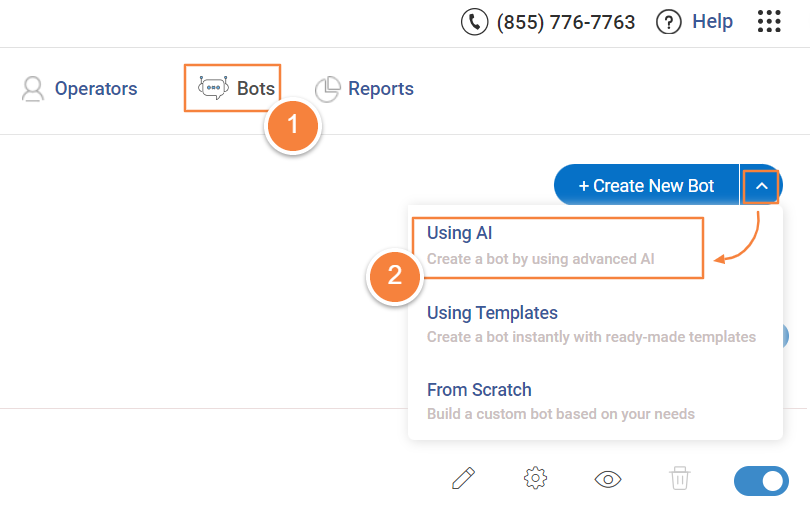
Now, you’ll need to provide the data your bot will use to learn and engage with users.
Step 2: Configuring Your Bot with Data
You have two options for configuring your bot:
URL: This involves entering your website’s URL in the “Website URL” field. This lets the system access and gather information from your site, so the bot can be customized with details like FAQs, product information, and other relevant content.
Text: If you don’t want to use your website or need to add extra information, you can manually enter text. This option is best for including detailed instructions, policies, or any specific details you want your bot to know and share with users.

Once done with selecting your preferred data source method and providing the necessary information, click “Process Data” to proceed.
Here’s what the website data looks like once it has been processed successfully:
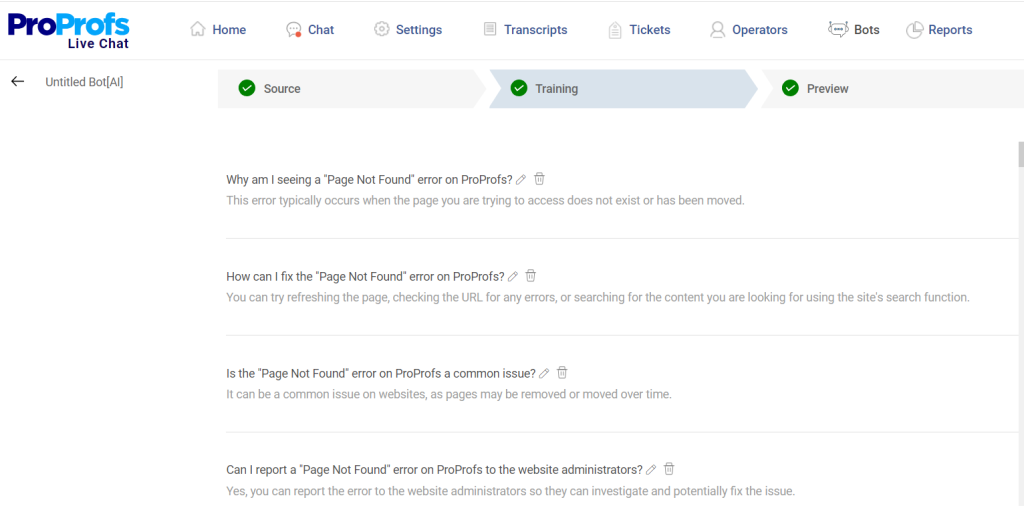
Processed data can also be modified by clicking on the edit icon.
Step 3: When the website data is successfully processed, click “Start Training.”
Step 4: Press “Preview” to see your bot in action.
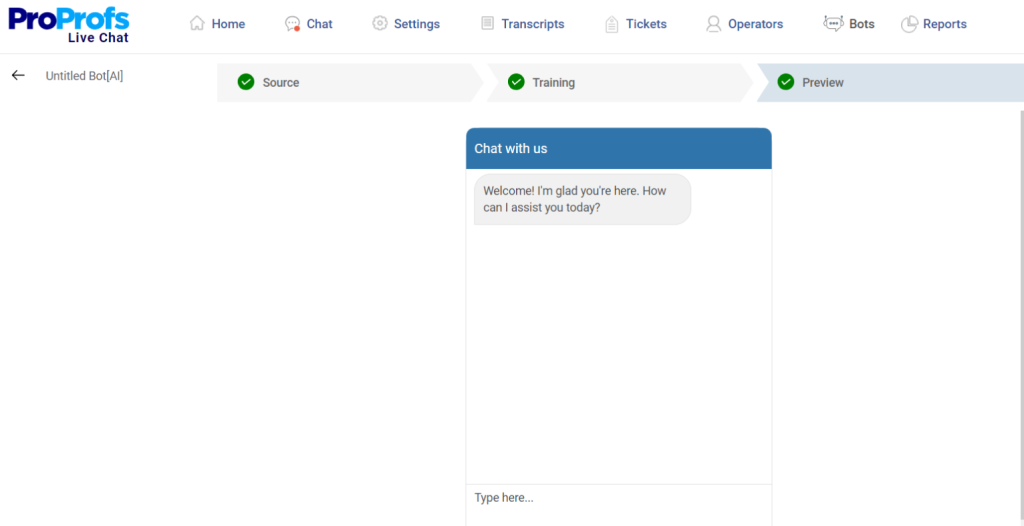
Your bot is fully set up and ready to use!
Future-Proof Your Retail Business With the Best Chatbot!
Investing in chatbots isn’t just a trend; it’s a necessity for the future of retail. From automating customer service to personalizing shopping experiences, chatbots offer unmatched potential to improve customer satisfaction and drive business growth.
But, choosing the right chatbot solution is crucial. If you’re seeking a robust, customizable platform for your retail business that’s easy to integrate and use, consider ProProfs Chat.
With its advanced AI powered chatbots, powerful analytics, and comprehensive features, ProProfs Chat empowers you to deliver exceptional customer service and stay ahead of the curve!
FREE. All Features. FOREVER!
Try our Forever FREE account with all premium features!

 We'd love your feedback!
We'd love your feedback!
 Thanks for your feedback!
Thanks for your feedback!


